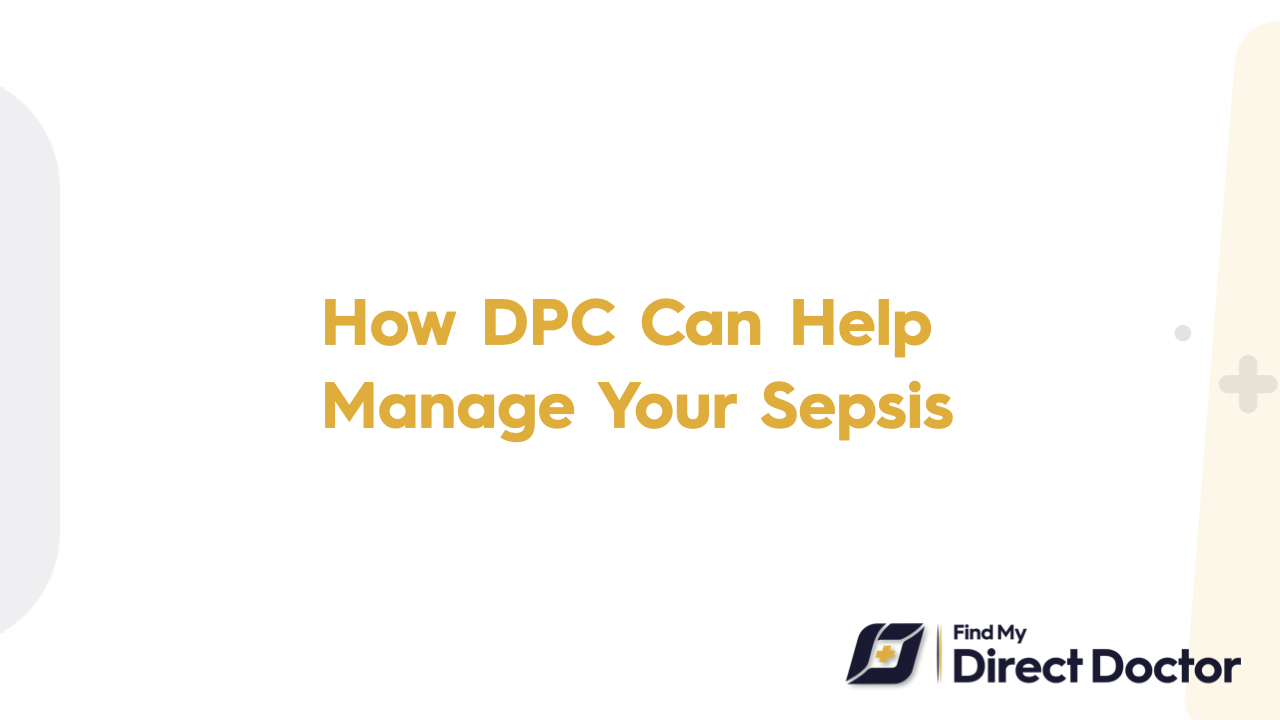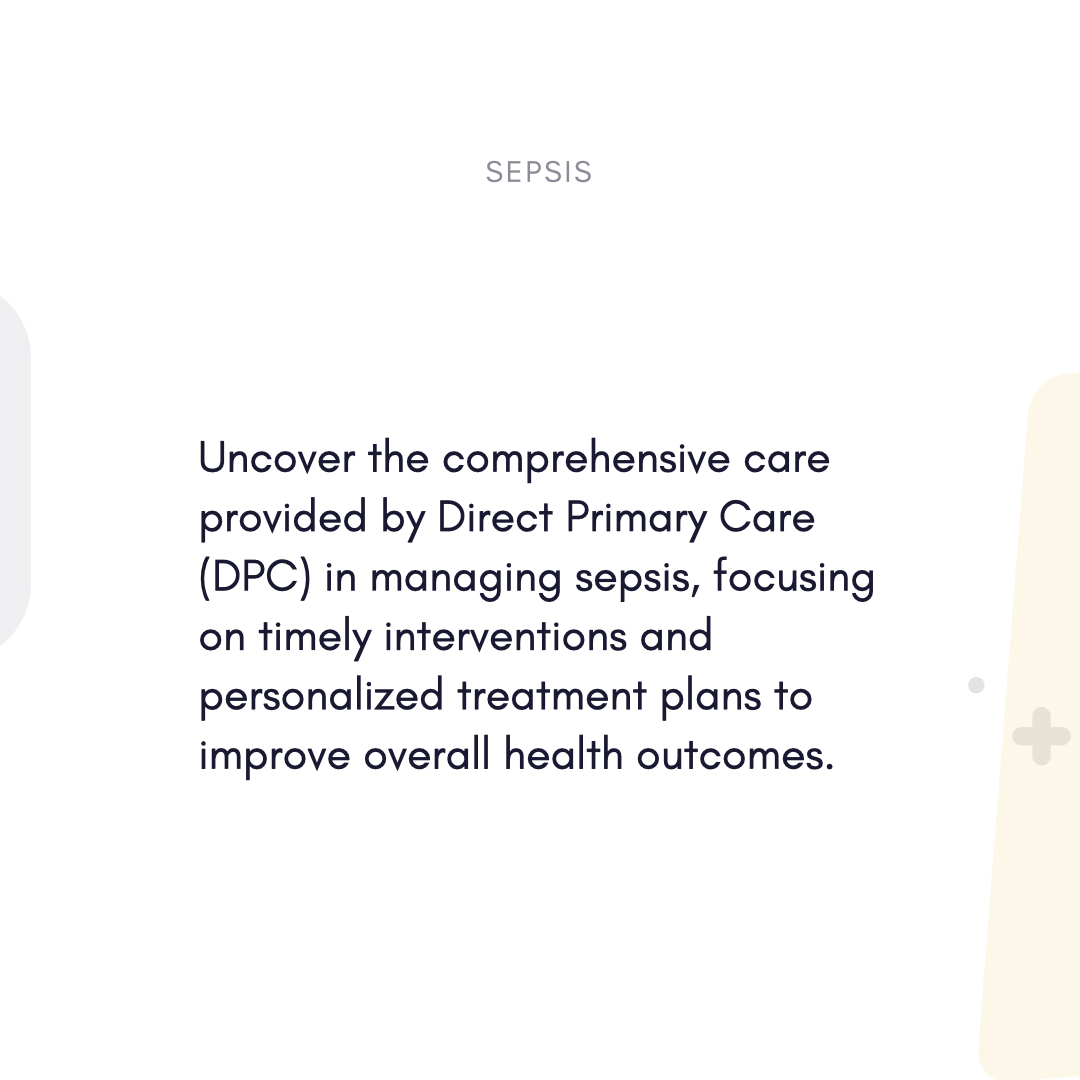Sepsis and Direct Primary Care (DPC): Lifesaving Coordination and Recovery Support
A fever that rises without warning. Confusion indicating your body is under attack. For 1.7 million sepsis survivors yearly, this life-threatening infection response is a road to recovery rather than only a hospital crisis. Although traditional care often leaves patients post-discharge, there is hope since direct primary care (DPC) fills in the void with vigilant, ongoing treatment.

Gaining Knowledge of Sepsis
The body's extreme reaction to infection, sepsis causes organ malfunction (kidneys, lungs, liver).
- Hypotension, changed mental state
- Long-term consequences: PTSD, weariness, cognitive trouble
Risks handled: Septic shock, death (in severe cases 30–50% mortality) Early antibiotics and follow-up after discharge are stressed in the Surviving Sepsis Campaign.
How DPC Changes Treatment for Sepsis
Usually costing 100 USD–300 USD per month, Direct Primary Care (DPC) runs on a membership model and provides flat fee access to your physician. This means for sepsis patients no co-pays, no care gaps, and a recovery plan as vital as your ICU stay.
1. Quick Identification and Organization
The easily available DPC model guarantees:
- 24/7 telehealth triage for early sepsis symptoms (fever, confusion).
- Directing ER transfers and IV antibiotic starts immediately.
- Post-ICU treatment: PICS (Post-Intensive Care Syndrome) monitoring.
2. Individualized, Guideline-Driven Rehabilitation
DPC doctors design customized plans compliant with SSC policies:
- Medication management: Changing antibiotics in response to culture data.
- Physical therapy for weakness and nephrology for AKI follow-up help organize rehab.
- Mental health: If necessary, screen for depression or PTSD, then SSRIs.
3. All-around, reasonably priced assistance
By cutting medication costs—wholesale pricing for antibiotics or antivirals—DPC lowers both financial and health risks.
- Early UTI and pneumonial intervention helps to prevent readmissions.
- Education: Instructing families on "Sepsis Six" warning signs
DPC's advantages for Sepsis Patients
1. Unmatched Accessibleability
- Appointments for new symptoms or wound checks same-day.
- Not waiting for home health setup or specialist referrals.
2. Customized Interventions
- Patients with immunocompromise: preventative antibiotics or antivirals.
- Fall prevention, cognitive rehabilitation programs—for elderly survivors.
3. Open Cost: Affordability
- Included in membership are basic labs, care coordination, and consultations.
- Usually, by preventing avoidable readmissions, savings of 15,000 USD+.
Personal Success Stories from Real Life
- Case 1: Sarah, age 58, escaped septic shock. Early UTI recurrence caught by DPC's weekly visits helped to prevent readmission.
- Case 2: James, 72, recovered mobility following DPC-coordinated PT and cognitive therapy following sepsis.
Answers: DPC and Sepsis
- Q: Can DPC manage crises involving septic shock?
- A: A DPC physician guarantees SSC procedures are followed and coordinates 911/ER treatment.
- Q: Is DPC reasonably priced following a hospital stay?
- A: Perfectly true. Members avoid 5,000 USD+ SNF copays and cut meds.
- Q: Regarding long-term organ damage, what then?
- A: A DPC works with experts for dialysis, pulmonology, etc.
Why DPC Helps Sepsis Patients Win?
Emphasizing DPC's alignment with recovery criteria, the Sepsis Alliance supports:
- Early identification using 24/7 access.
- Precision: Customizing recovery for residual organ deficits.
- A continuous care team substitutes post-discharge abandonment for trust.
From Living to Thriving in Survival
Sepsis does not have to finish at hospital discharge. Every lab, every milestone, DPC gives you a partner who watches constantly, acts aggressively, and walks with you from crisis to complete recovery.






